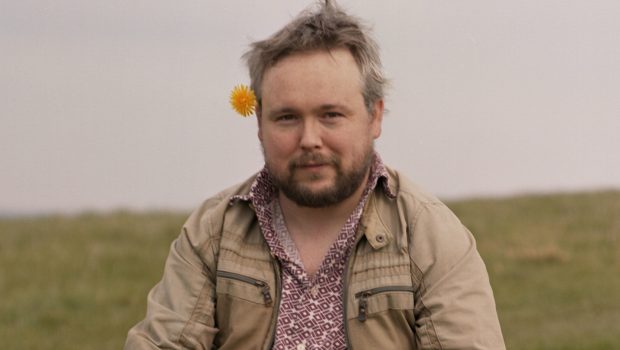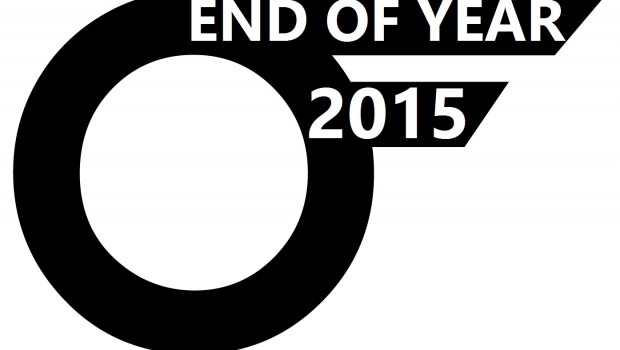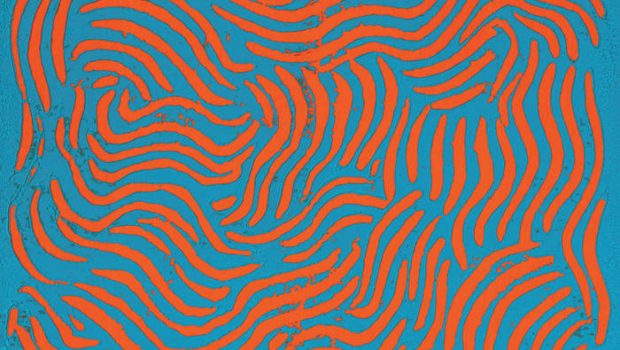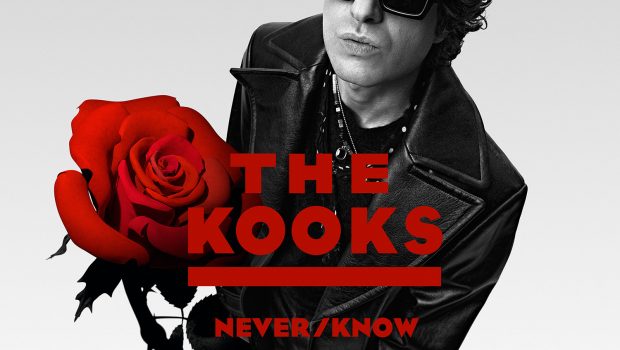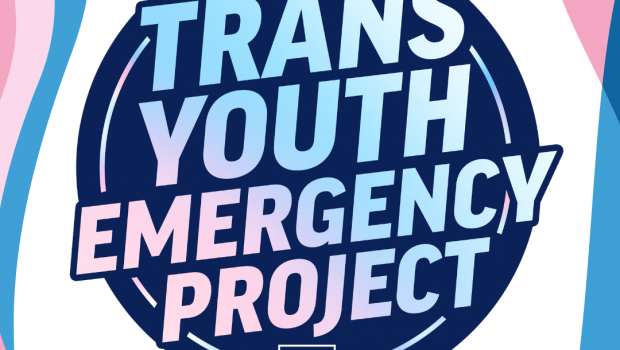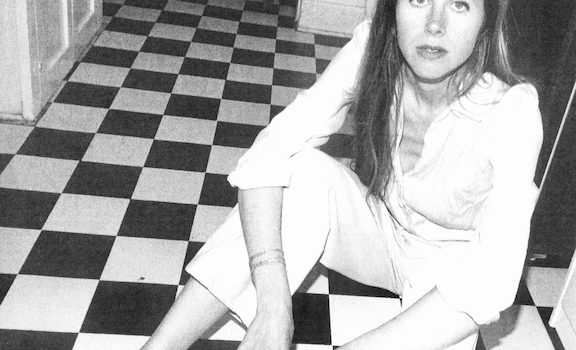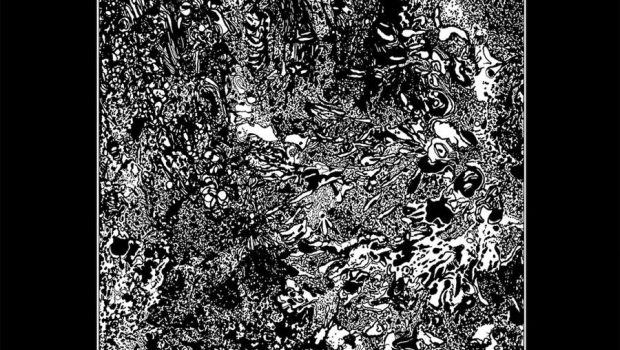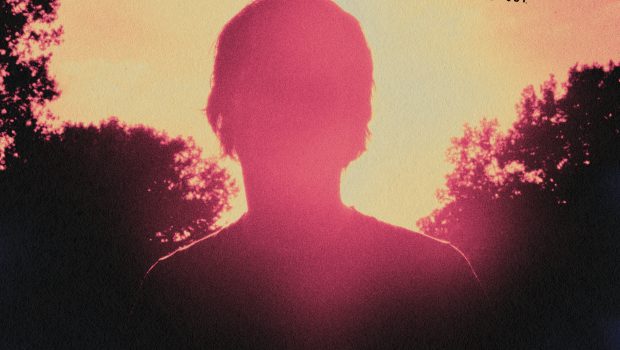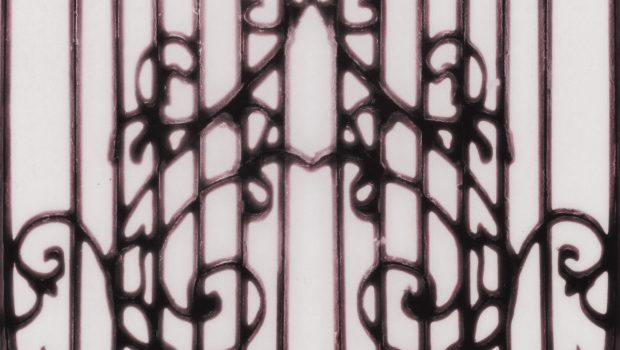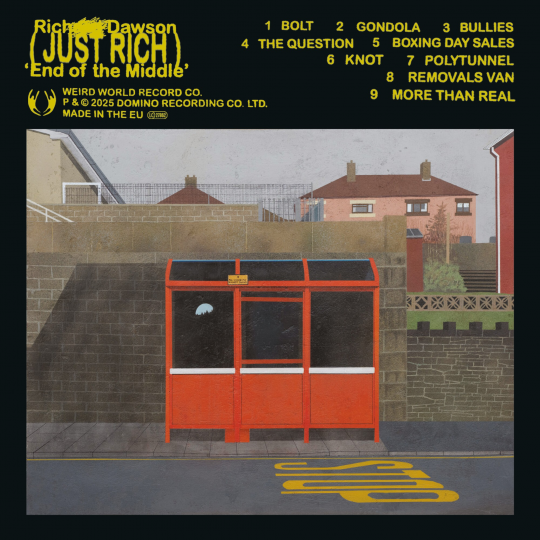 While many singer-songwriters mine personal experience for subject matter, a glance at Richard Dawson’s discography makes it clear that he is not an autobiographical writer. 2017’s ‘Peasant’ was set in medieval times whilst his most recent album, 2022’s ‘The Ruby Chord’ took place in a troubled virtual reality future so it is safe to say that his writing has been grounded in imagination rather than documentary realism. Dawson’s latest release, ‘End of the Middle’ is closer in spirit with the 2019 released ‘2020’ in taking place in a broadly contemporary setting and having songs that are relatively tightly structured and avoid his tendency for sprawling epics. However, the presence of ‘Gondola’ in which a grandmother muses over her life is an indication that Dawson is continuing to inhabit characters rather than telling his own life story.
While many singer-songwriters mine personal experience for subject matter, a glance at Richard Dawson’s discography makes it clear that he is not an autobiographical writer. 2017’s ‘Peasant’ was set in medieval times whilst his most recent album, 2022’s ‘The Ruby Chord’ took place in a troubled virtual reality future so it is safe to say that his writing has been grounded in imagination rather than documentary realism. Dawson’s latest release, ‘End of the Middle’ is closer in spirit with the 2019 released ‘2020’ in taking place in a broadly contemporary setting and having songs that are relatively tightly structured and avoid his tendency for sprawling epics. However, the presence of ‘Gondola’ in which a grandmother muses over her life is an indication that Dawson is continuing to inhabit characters rather than telling his own life story.
The album zooms in to provide vignettes of upper working-class/lower middle-class life for a few generations of an extended family. Through this, an intimate picture of cycles of behaviour and mistakes is shown. The approach is inspired by his love for the films of Japanese director, Yasujiro Ozu, best known for 1953’s ‘Tokyo Story.’ He was renowned for a style in which the big dramatic events happened off-screen but the real drama of intimate small-scale family relationships was revealed. Musically, Dawson tries to capture this intimacy with songs in a minor key and the instruction to drummer Andrew Cheetham to play his kit so softly that he is barely touching the drums. The rewards of this approach are apparent on the first single to be released, ‘Polytunnel’, which appears seventh on the album’s running order. It could seem banal in its description of routine tasks at the allotment (pulling up turnips, thinning carrots and leeks, tying in the sweet peas, repairing a hole in the polytunnel) but there are poignant references to it being “my happy place” and “it’s Karen who was always the green-fingered one / I don’t really know what I am doing” which lifts the veil on the narrator’s grief. For me, it strikes a chord of remembering working on my father’s allotment immediately after he had died, the comfort in routine manual tasks and the sense of connection and healing it engendered. Combined with Dawson’s unusual technique (his vocals always skirt round the tune and stretch for heights beyond his natural range in a way that would be ridiculed on TV talent shows and his guitar-picking is far from smooth), it adds a raw and emotional edge to his music. It is something tiny in which far greater truths are uncovered.
‘End of the Middle’ begins with ‘Bolt’. Its set up is a family at home, narrator on the phone (clearly a landline which dates the action), Jen watching Neighbours, dad whistling in the bath and mam reading yesterday’s paper on the sofa when the house is struck by lightning. The bolt can be seen as a metaphor for the light that is going to be shone on the family. Musically, the template is post-rock, reminiscent of the restrained passages on Slint’s ‘Spiderland’. That family’s grandmother narrates ‘Gondola’, switching between daytime TV and regrets, especially not going into higher education. There are some incredibly bruising lines (“Deal or No Deal / box number 17 is opened to reveal a wound that never healed” and “my dreams died like a dolphin in a net.”) It shows how small-scale art can be brutal and at times Dawson’s voice comes across as a muted howl.
‘Bullies’ is told by the father looking back on his experiences of bullying at school while dealing with his son’s suspension for scraping. It hints at the theme of how to break cycles of behaviours and outcomes. Colour is added with squawks of Faye MacCalman’s freeform clarinet. The longest song at nearly eight minutes long, ‘The question’ is aptly mysterious, little Elsie being troubled by seeing an apparition carrying a blinking severed head under his arm. The jagged musical patterns occasional build to operatic peaks before sharply putting on the handbrake and travelling off at unlikely tangents.
Initially released in December as the second single, ‘Boxing Day sales’ feels an out of place inclusion on a Valentine’s Day released album but warrants its place as its critique of the temptations of late capitalism is blessed with the album’s most memorable melody and clarinet runs. ‘Knot’ is a bleak account of self-loathing at an old-pal’s wedding, leavened by descriptive powers (“waddling down the aisle comes a Golden Retriever / in a waistcoat and Dicky bow” and “Karaoke: Is it me who butchers ‘My Heart Will Go On’?”) Swathes of noise accompany the arguments in the car home.
‘Removals van’ has two generations of narrator: one remembering Lego, staying up for the England Germany semi-final and his dad being made redundant; the other in the attic playing Doom, hearing his father slamming the door and screaming “I can’t take it anymore”. It is intricately crafted, jumping back and forth between time to show how each moment is influenced by earlier events, managing to be both miniscule and grand in its themes. The final tune, ‘More Than Real’ is a technicolour burst after the more restrained palette employed earlier. Harps, clarinets and orchestration blend as a father recalls setting eyes on his baby daughter and vowing to change his wicked ways. Part way through, Sally Pilkington takes over vocal duties, telling of father being taken unconscious into hospital. It makes for a weepy, melodramatic ending.
While ‘End of the Middle’ seems small-scale compared to some of the previous world’s Dawson has created, it ranks with ‘2020’ for being accessible and engaging. It might lack the musical extravagance and extremes for which he is known but has an intimacy and beauty of its own.
Richard Dawson: End of the Middle – Out 14 February 2025 (Domino)

